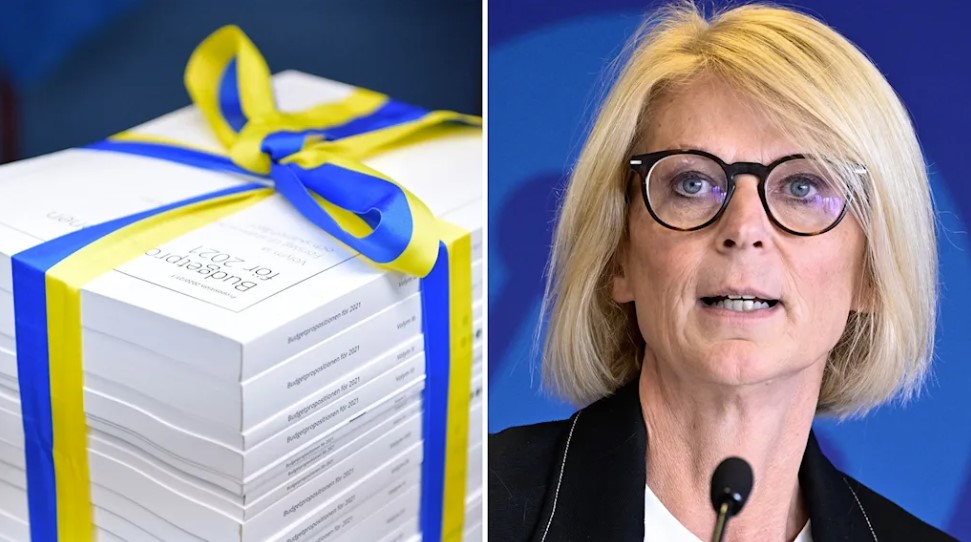
Sveriges Radio http://www.tinyurl.com/msf6994t Foto: Jessica Gow/TT och Claudio Bresciani/TT
Deceit. Disappointment. Restraint. They sound like tag lines from the latest season of “the Crown,” but they’re actually reactions to the budget upon its release last Tuesday. As soon as the nearly 3000-page document was made available at 8am Tuesday morning, a number of parties, organizations and interest groups made their opinions on it public.
Accusations of deceit were actually the loudest from the Social Democrats. What seemed to be upsetting was that the Kristersson government didn’t announce any big tax cuts or help with coming electricity bills the way they had promised pre-election. It’s natural that the opposition complains, but actually complaining on behalf of the voters who elected the current government was a turnaround. The lesser amount to international aid and even the lesser number of UN quota refugees went by without particular Social Democratic comment (though the Liberals had difficulty with it). It lends some credence to the suspicion that the Social Democrats, in reality, have few problems with the right coalition’s budget.
No. Not happy.
On the other hand, however, many members of the right coalition’s parties were not at all pleased with what Minister of Finance Elisabeth Svantesson presented. Their displeasure was not so much about the lack of broad tax cuts, but what they considered a weak pro-work stance and too many expensive gives. Unemployment compensation remains at the high pandemic-era level (a demand from SD but more the opposition’s idea), and while labor immigration will be more restricted, there were no new economic incentives for those jobs to be filled with Swedish workers. An employee who has to drive to work will have continued compensation, and the price of diesel and gas will sink only marginally. None of these things, it is charged, change the employment dynamic.
Cars and Caravaggio
What was very dynamic was the rush to car dealerships all over the country following the government’s surprise declaration that the electric car rebate would be ending almost immediately. There was not the same rush to state museums following the government’s surprise declaration ending free admission, though. The former means paying up to seventy thousand kronor more, the latter perhaps 100 kronor.
How much for the tree?
Harder to price is the budget’s effect on the environment. As the Tidö Agreement laid out, the Ministry for the environment is now combined with the Ministry for energy, business and industry. Depending on one’s leaning, the consolidation is either a natural development as climate and business are interrelated, or a serious deprioritization. As it turns out, the budget showed a plan to cut the allocation for “General environmental protection and nature conservation” in half by 2025. The tax on plastic bags is still in place, but it’s doubtful that’s any comfort to anyone.
Not moving on the generally hated plastic bag tax is perhaps part of the restraint Svantesson has talked about. Tax cuts have been avoided not to increase inflation. The biggest increased outlays were defense, energy cost compensation, and lower prices at the pump, all of which were no surprise by the time the budget was formally presented, and are already priced in by banks and international agencies. The budget caused no tumultuous waves (see the United Kingdom). So far, the paradigm shift the new government declared following the Tidö Agreement doesn’t seem to have materialized.
